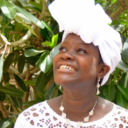Twenty years ago, I was an International Human Rights Law LLM Exchange Student at the University of the Western Cape in South Africa. One night I went to the weekly session of a psychic at Mama Africa restaurant. After declaring that I would be very blessed in life, that luck would be my middle name and that I would have a career that would involve spending a lot of time in the sky, she added that great success and happiness would come to me from mastering the art of simplicity and clarity. I have felt the truthfulness of that prediction many times.
The example of the recently concluded Naivasha Indaba on Reimagining Pan African and Feminist Philanthropies in Shaping Africa’s Future is a case in point. If it was not for sheer luck, I would never have attended that historic gathering. Out of trust and respect for their agency, I do not monitor closely what grantee partners do. As a result, I didn’t know that two of the Naivasha organisers were involved in an earlier African Philanthropy Conference in 2022 and was not even aware that it was happening until a few days before. My first reaction was not to go on the principle that this was an AFRICAN philanthropy conference and as an African staffer of a US based foundation I would be invading the space of the ‘real’ African philanthropists.
As a staunch resister of the status quo and as an African Feminist working in philanthropy, I had just found clarity about my mission. This is the path I will pursue and people I will cherish for the next seven years that are left of my term[1]. It is thanks to them and those aligned circumstances that I have been a privileged witness to Afrostory in the making.
For those of us working for major international foundations, to see pan-African comrades embrace feminist practices, recognise our privilege and reflect on how to use it to effectively challenge and dismantle negative practices, were all dreams come true. What I shall treasure the most is that leading Pan- African and feminist activists in attendance from different generations were also able to speak truth to us and to UAF-Africa and Trust Africa, the co-conveners. They warned us very rightly about the fact that this mission of reimagining philanthropy should not be ‘a political conflation of decolonising and surviving neo-liberalism’ and that ‘having black faces centralising money and power cannot be our end goal’. We were also reminded that semantics counts and that our common endeavour should go beyond decolonising philanthropy or pursuing a localisation agenda to really advocating and upholding anti-colonial practices and behaviours in the field and being the tool that others use to dismantle oppression.
A lot has been said since we left Naivasha about the historical nature of the moment, the out-of-this-world intellectual and financial commitment levels and the before and after feeling. I agree with all those statements and can say that I found clarity about my identity in philanthropy. As such my personal commitment has already begun: to give part of my salary, open up philanthropy spaces and help build knowledge to manage endowments.
Alongside these personal efforts, the Hewlett Foundation itself is deepening its institutional efforts to interrogate power and build more equitable partnerships, including by shifting decision-making and resources to the communities it seeks to serve. As we strive for more equitable funding practices and partnerships, I hope that funding from us – and many others – will begin to flow in greater quantities where it’s most needed.
Diakhoumba Gassama is a Program Officer in the Gender Equity and Governance Program at the William and Flora Hewlett Foundation.






Comments (0)